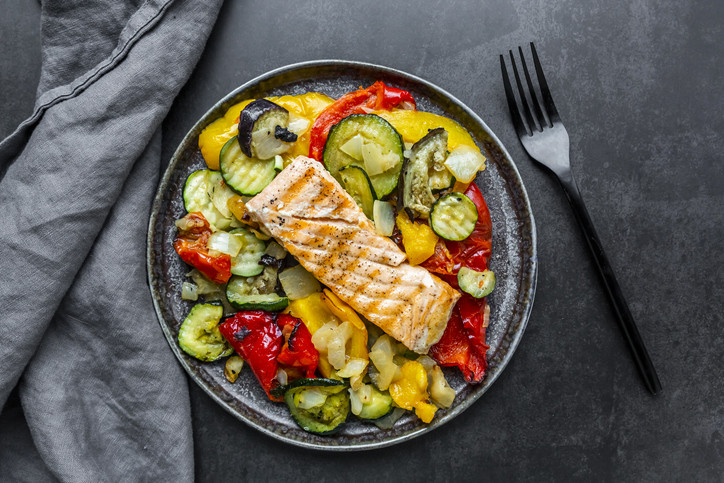Struggling with migraine hangovers? Read this
Does cannabis actually relieve pain — or is something else going on?
Jump-start a healthier New Year with four holiday eating tips
Sibling rivalry is normal — but is it helpful or harmful?
Prostate cancer: How long should hormonal therapy last?
Overeating? Mindfulness exercises may help
Genes protective during the Black Death may now be increasing autoimmune disorders
Does weight loss surgery relieve pain?
Have you done your crossword puzzle today?
Concerned about your child’s development?
Nutrition

You might be surprised to learn that diet plays an important role in chronic inflammation– digestive bacteria release chemicals that may spur or suppress inflammation. The types of bacteria that populate our gut and their chemical byproducts vary according to the foods we eat. Some foods encourage the growth of bacteria that stimulate inflammation, while others promote the growth of bacteria that help suppress it.
Here are some of the foods and beverages that have been linked to less inflammation and reduced risk for chronic diseases:
Studies have shown that polyphenols have multiple anti-inflammatory properties. A review published in the British Journal of Nutrition summarized a number of studies supporting the notion that dietary polyphenols may lower inflammation in the body and improve the function of cells that line blood vessels. Foods high in polyphenols include onions, turmeric, red grapes, green tea, cherries, and plums, as well as dark green leafy vegetables such as spinach, kale, and collard greens.
In addition, olive oil, flaxseed oil, and fatty fish such as salmon, sardines, and mackerel offer healthy doses of omega-3 fatty acids, which have long been shown to reduce inflammation.
Foods that can fuel inflammation
The foods that contribute to inflammation are the same ones generally considered bad for other aspects of health. These include sugary sodas and refined carbohydrates (like white bread and pasta), as well as red meat and processed meats.
Such unhealthy foods are also likely to contribute to weight gain, which is itself a risk factor for inflammation. In addition, certain components or ingredients in processed foods, like the emulsifiers added to ice cream, may have effects on inflammation.
The key to reducing inflammation with diet
To practice anti-inflammatory eating, it’s best to focus on an overall healthy diet rather than singling out individual “good” and “bad” foods. In general, a healthy diet means one that emphasizes fruits, vegetables, nuts, whole grains, fish, and healthy oils, and limits food loaded with simple sugars (like soda and candy), beverages that contain high-fructose corn syrup (like juice drinks and sports drinks), and refined carbohydrates.
For additional advice about ways to reduce inflammation, check out Fighting Inflammation , a Special Health Report from Harvard Medical School.
Image: © Iacaosa | GettyImages
As a service to our readers, Harvard Health Publishing provides access to our library of archived content. Please note the date of last review or update on all articles.
No content on this site, regardless of date, should ever be used as a substitute for direct medical advice from your doctor or other qualified clinician.
Nutrition
Nutrition
Nutrition
Get the latest in health news delivered to your inbox!
© 2022 by The President and Fellows of Harvard College
Do not sell my personal information | Privacy Policy
Thanks for visiting. Don’t miss your FREE gift.
The Best Diets for Cognitive Fitness, is yours absolutely FREE when you sign up to receive Health Alerts from Harvard Medical School
Sign up to get tips for living a healthy lifestyle, with ways to fight inflammation and improve cognitive health, plus the latest advances in preventative medicine, diet and exercise, pain relief, blood pressure and cholesterol management, and more.
Health Alerts from Harvard Medical School
Get helpful tips and guidance for everything from fighting inflammation to finding the best diets for weight loss…from exercises to build a stronger core to advice on treating cataracts. PLUS, the latest news on medical advances and breakthroughs from Harvard Medical School experts.
BONUS! Sign up now and
get a FREE copy of the
Best Diets for Cognitive Fitness
Stay on top of latest health news from Harvard Medical School.
Plus, get a FREE copy of the Best Diets for Cognitive Fitness.